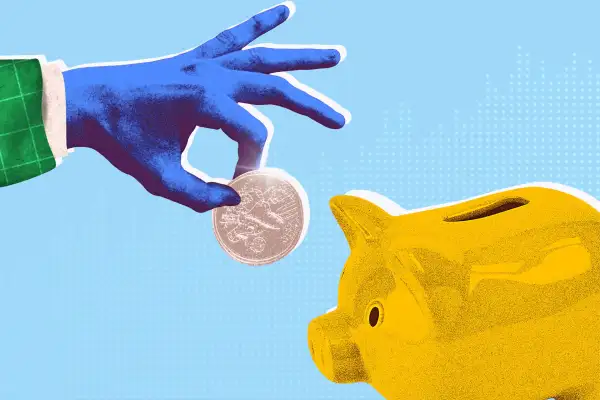Time Is Running out to Snag a CD With a 5% Yield

For over a year, savers have been able to find certificates of deposit, or CDs, offering annual percentage yields (APYs) of 5% or higher.
But those days may be coming to an end.
With the Federal Reserve expected to cut interest rates by September — and possibly several times before the end of the year — this may be the last chance for savers to lock in a 5% APY with a CD.
To fight surging post-pandemic inflation, the U.S. central banking system raised interest rates 11 times from March 2022 to July 2023, making borrowing costlier for consumers and slowing down the economy. But higher benchmark interest rates have also meant better returns on savings accounts like CDs.
A CD is an account insured by the Federal Deposit Insurance Corporation, or FDIC, with a fixed term and a fixed interest rate. CD terms are as short as three months but may extend up to 10 years.
These accounts are not as liquid as other savings options and often come with early withdrawal penalties, so investing in a CD is best suited for people who have money they won't need to access until the term is up.
Why CD rates are going down
Banks and credit unions have lowered the rates on CDs so far in 2024, and that trend is likely to continue.
Market observers expect the federal funds rate to be 75 basis points lower at the end of the year than it is now, according to the CME Group’s FedWatch Tool. Speaking generally, the more the Fed cuts interest rates, the more you can expect CD rates to fall.
For now, some banks are still offering 12-month CDs with APYs at or above 5%, but the list isn’t as long as it used to be.
In January, Barclays, Marcus and Sallie Mae were advertising 5.50% APYs. As of Wednesday, Marcus and Sallie Mae were down to 5.15%, and Barclays was at 5% flat.
Discover’s 12-month CD APY fell from 5.20% to 4.70% in that timeframe, while Synchrony's 12-month CD APY slid from 5.30% to 4.8%. In January, Ally was offering a 5.25% APY for 12-month CDs, which has more recently decreased to 4.50% — a significant drop.
Ally's chief financial officer, Russ Hutchinson, said in a first-quarter earnings call that “the combination of a great brand and comprehensive value proposition enabled us to lag competition from a pricing perspective on the way up and positions us to lead on the way down.” In an earnings call Wednesday, he said Ally's next steps “will depend to some extent on Fed rate moves.”
Should you lock in a CD rate?
According to Bryan Johnson, chief financial officer at CDValet.com, it’s unclear exactly where CD APYs are headed in the rest of 2024 due to the uncertain rate environment. The trajectory, however, appears to down.
“CDs have been more attractive compared to other principal guaranteed options, like Treasuries, which has not always been the case,” he writes in an email to Money. “As a result, it’s a good time to buy a CD and lock in the extra yield.”
Longer-term CDs currently have lower rates than 12-month CDs. For example, Ally’s 3-year CD has a 4% APY compared to the 4.50% APY for the 12-month option. Banks are offering lower APYs on these CDs because they don't want to be stuck paying above-market rates if the Fed goes on a cutting spree.
Despite the difference in APYs, Johnson says he currently favors longer-term CDs, which let you lock in rates that likely won’t be around in a couple of years. However, the pros and cons of different CDs vary depending on the person and the time horizon for their savings.
More from Money:
Nvidia's CEO Is Selling Millions in Company Stock. Is the AI Bubble About to Burst?




